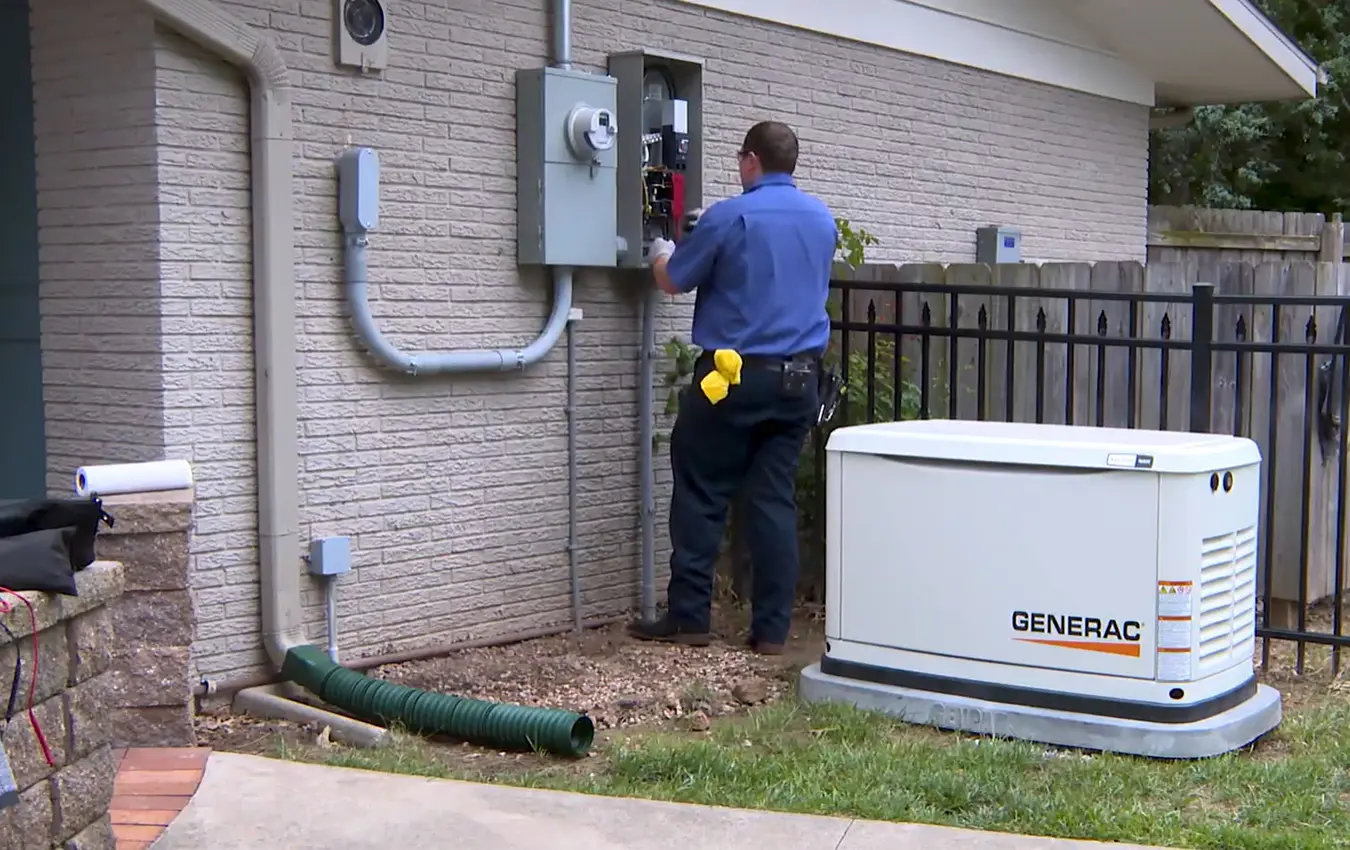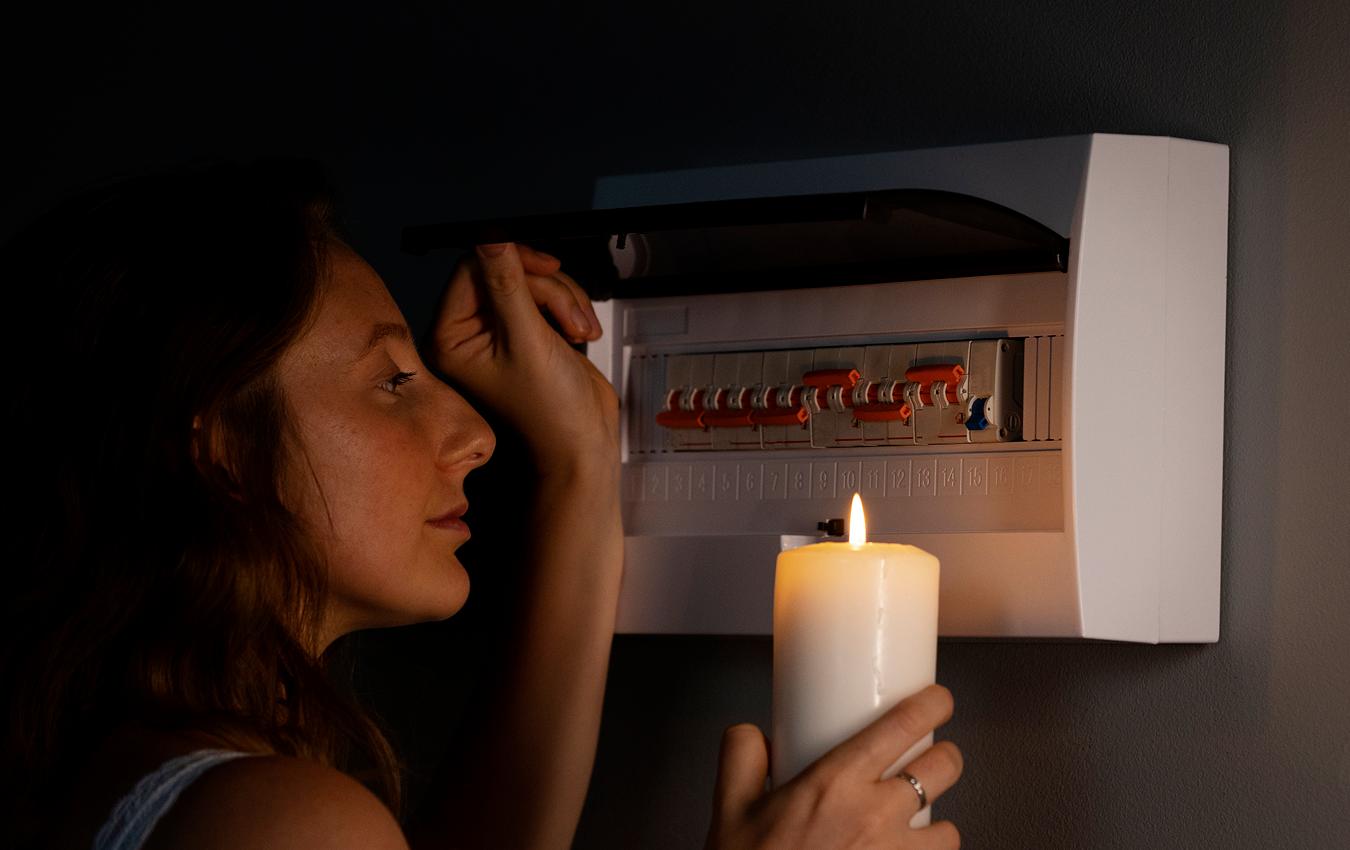Installing a home generator seems like a straightforward task, but it’s a project fraught with dangers for the inexperienced. The risks associated with DIY generator installations extend far beyond the simple inconvenience of a power outage. Let’s delve into the top 10 reasons why leaving this job to a qualified electrician, particularly those specializing in South Florida generator installation, is the only sensible choice.
1. Electrocution
Generators operate at high voltages, often 120 or 240 volts. A simple mistake, such as accidentally touching a live wire or working with wet hands, can deliver a fatal shock. Burns, internal injuries, and cardiac arrest are just some of the grim consequences of mishandling electrical currents. Professional electricians have the training, experience, and insulated tools to safely handle high-voltage systems, eliminating this life-threatening risk.
2. Ignition Hazards
Improper wiring, loose connections, and overloaded circuits are a recipe for disaster. The heat generated by a running generator can easily ignite nearby flammable materials, turning a minor mishap into a raging inferno. Electrical fires spread rapidly and are notoriously difficult to control, posing a grave danger to life and property. By ensuring all wiring is done correctly, a professional electrician virtually eliminates the risk of a fire hazard.
3. Carbon Monoxide Poisoning
Generators produce carbon monoxide (CO), a colorless, odorless gas that can be lethal even in small doses. If the generator isn’t properly ventilated, CO can build up inside your home, silently poisoning its occupants. Early symptoms of CO poisoning include headaches, dizziness, nausea, and confusion. Prolonged exposure can lead to unconsciousness and death. Professional installation ensures proper ventilation, mitigating this deadly risk.
4. Equipment Failure
Incorrect wiring or grounding can have a domino effect, damaging not only the generator itself but also your home’s electrical system and any appliances connected to it. This can lead to a cascade of costly repairs or replacements, transforming a supposed cost-saving measure into a financial nightmare. An experienced electrician understands how to properly integrate the generator with your existing system, minimizing the risk of damage.
5. Code Violations & Insurance Issues
DIY installations that don’t adhere to local electrical codes can result in hefty fines and invalidate your homeowner’s insurance. In the event of an accident or damage caused by the generator, you could be held liable for all costs, including repairs, medical bills, and legal fees. Professionals are well-versed in electrical codes and ensure the installation is compliant, protecting you from potential liability.
The Premier Solution for Safe South Florida Generator Installation
Don’t risk your safety or the well-being of your family. When it comes to South Florida generator installation, trust the experts at Premier Electrical Services. We have years of experience in handling all types of generator installations, ensuring they’re safe, efficient, and compliant with local regulations. Our team of certified electricians understands the unique challenges South Florida’s climate and weather patterns pose. Contact Premier Electrical Services today for a free consultation and experience the peace of mind that comes with a professionally installed generator. Dial: 954-900-1696.
6. Backfeeding Blackout
Incorrectly connecting a generator can cause electricity to flow back into the power grid, endangering utility workers who are trying to restore power. This phenomenon, known as backfeeding, can result in serious injuries or fatalities for line workers. Electricians understand how to install a transfer switch, which isolates your home from the grid during generator operation, preventing backfeeding and protecting those working to restore power.
7. Noise Nuisance
Generators can be noisy, especially larger models. Improper placement can lead to excessive noise pollution, disturbing your family and neighbors, potentially leading to complaints or legal action. An experienced electrician can assess the best location for your generator, taking into account noise levels and proximity to living spaces, minimizing any potential disturbances.
8. Fuel Fiasco
Gas-powered generators require careful fuel handling and storage. Spills and leaks can easily lead to fire or explosions, endangering lives and property. An electrician can advise on safe fuel storage and handling practices, ensuring your generator setup is as safe as possible.
9. Grounding Gone Wrong
Incorrect grounding can lead to electrical shocks when operating the generator or using appliances connected to it. Even a mild shock can be dangerous, and in some cases, it can be fatal. Professional electricians ensure proper grounding to protect users from electrical hazards, giving you peace of mind when using your generator.
10. Permits and Inspections
Many areas require permits for generator installations, and inspections are often mandatory. Failing to obtain permits or pass inspections can lead to fines, delays, and potential safety issues. Professional electricians handle the paperwork and navigate the permit process, ensuring your installation meets all local regulations and safety standards.
Beyond Immediate Risks
For the average homeowner, installing a generator is no weekend project. It can quickly become a time-consuming ordeal, filled with unexpected challenges and frustrations that lead to wasted time and resources. Not to mention the potential for stress and anxiety as you grapple with complex electrical systems.
Furthermore, many generator manufacturers require professional installation to maintain the warranty. A DIY attempt gone wrong could leave you with a hefty repair bill or a non-functioning generator when you need it most. Even if your installation appears to work, it may not perform optimally due to improper wiring or configuration. This could result in insufficient power during an outage, leading to further inconvenience or even safety issues if critical appliances or medical equipment are compromised.
By opting for professional installation, you gain access to expertise that goes beyond simply connecting wires. Electricians can assess your needs and recommend the most suitable generator type and size for your home. They can optimize the installation for efficiency, noise reduction, and overall performance, ensuring that your generator operates at its peak potential.
Remember, electrical systems are complex and require specialized knowledge and experience to work with safely. Most homeowners lack the expertise to troubleshoot potential problems or identify hidden hazards. A professional electrician brings years of training and experience, ensuring a safe, reliable, and efficient installation.
Ultimately, the peace of mind that comes from knowing your generator is installed correctly, safely, and in compliance with all regulations is invaluable. Especially during a power outage, the last thing you want to worry about is whether your DIY project is going to hold up. By leaving it to the professionals, you can rest assured that your generator will perform as expected when you need it most.
Conclusion
While the prospect of saving money with a DIY generator installation may seem appealing, the potential risks and drawbacks far outweigh any short-term financial gains. The electrical system in your home is complex and potentially dangerous. One wrong move can have devastating consequences. Protect yourself, your family, and your home by entrusting your generator installation to a qualified electrician. It’s an investment in safety, peace of mind, and the long-term reliability of your backup power solution.
Don’t leave your safety to chance. Contact Premier Electrical Services today for reliable and professional South Florida generator installation. Call us now: 954-900-1696.
Key Takeaways
- DIY generator installation poses serious risks, including electrocution, fire, and carbon monoxide poisoning, making professional help essential.
- Hiring a qualified electrician ensures safe, code-compliant installation and optimal generator performance, providing peace of mind during power outages.
- Don’t risk your safety or property by attempting a DIY installation; trust the expertise of professionals for a reliable backup power solution.
Check out the latest news:
- Commercial Energy Audit: Spotting the Sources of Energy Waste
- Protect Your Fort Lauderdale Home with Whole-House Surge Protection
- Power Outages in Fort Lauderdale: How to Protect Your Home
- Preparing for a Home Rewiring Project: A Checklist for Homeowners
- 5 Critical Signs You Need a Whole-House Surge Protector





